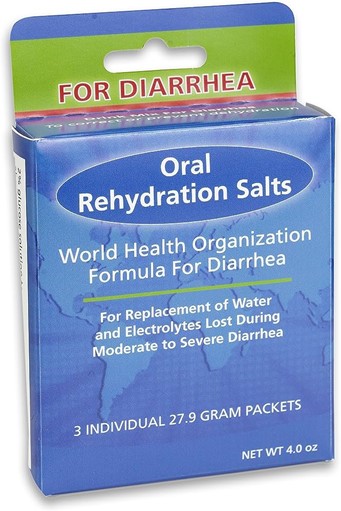Which nursing intervention should a nurse expect to perform on a 7-year-old child diagnosed with mild dehydration secondary to diarrhea?
Administer a bolus of intravenous (IV) fluids as ordered.
Offer clear fluids, popsicles, and gelatin as tolerated by the child.
Offer oral rehydration solution (ORS) in small, frequent amounts.
Keep the child on a strict BRAT (bananas, rice, applesauce, toast) diet.
The Correct Answer is C
Choice A rationale:
Administering a bolus of intravenous (IV) fluids might be necessary for severe dehydration, but in mild dehydration, oral rehydration is preferred as it avoids potential complications associated with IV fluids.
Choice B rationale:
Offering clear fluids, popsicles, and gelatin is appropriate, but this choice does not specifically address rehydration, which is the primary concern in mild dehydration.
Choice C rationale:
Offering oral rehydration solution (ORS) in small, frequent amounts is the most appropriate intervention for mild dehydration secondary to diarrhea. ORS contains the right balance of electrolytes and fluids to rehydrate without overwhelming the gastrointestinal tract.
Choice D rationale:
Keeping the child on a strict BRAT diet (bananas, rice, applesauce, toast) is an outdated approach. While BRAT foods can be tolerated during mild illness, they lack the necessary electrolytes and fluids to effectively rehydrate.

Nursing Test Bank
Naxlex Comprehensive Predictor Exams
Related Questions
Correct Answer is C
Explanation
Remove all beverages from the patient's bedside.
Choice A rationale:
Giving the patient a laxative is inappropriate and unnecessary in the context of a ruptured appendix. The focus should be on preparing the patient for surgery and managing the acute condition.
Choice B rationale:
Administering ibuprofen should be avoided as it can mask symptoms and potentially worsen the patient's condition by masking signs of inflammation or infection. This delay in appropriate care could lead to complications.
Choice C rationale:
Removing all beverages from the patient's bedside is essential. NPO (nothing by mouth) status is typically maintained for patients with suspected appendicitis or other surgical conditions to prevent potential aspiration in case surgery is required.
Choice D rationale:
Providing a heating pad is contraindicated in cases of suspected appendicitis or any acute abdominal condition. Heat can worsen inflammation and potentially cause the appendix to rupture, leading to more severe complications.
Correct Answer is C
Explanation
Urine output 76 mL/24 hours.
Choice A rationale:
BUN (Blood Urea Nitrogen) of 14 mg/dL falls within the normal range (7-20 mg/dL) and is not an immediate concern.
Choice B rationale:
Serum Creatinine of 0.4 mg/dL is also within the normal range (0.2-0.5 mg/dL) and does not warrant immediate action.
Choice C rationale:
Urine output of 76 mL/24 hours is significantly decreased from the expected normal range (1-2 mL/kg/hour), indicating potential kidney dysfunction or dehydration. This requires immediate action to assess the child's hydration status and kidney function.
Choice D rationale:
Hb (Hemoglobin) of 12 g/dL is within the normal range for a 5-year-old child (11.5-15.5 g/dL) and does not necessitate urgent intervention.
Whether you are a student looking to ace your exams or a practicing nurse seeking to enhance your expertise , our nursing education contents will empower you with the confidence and competence to make a difference in the lives of patients and become a respected leader in the healthcare field.
Visit Naxlex, invest in your future and unlock endless possibilities with our unparalleled nursing education contents today
Report Wrong Answer on the Current Question
Do you disagree with the answer? If yes, what is your expected answer? Explain.
Kindly be descriptive with the issue you are facing.
